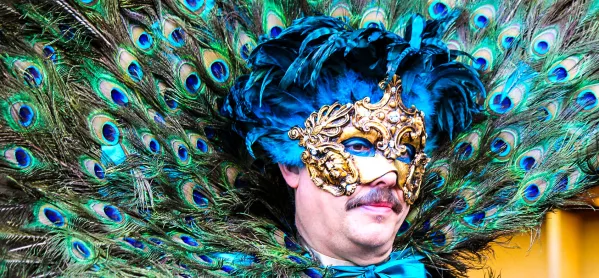How can teachers address toxic male archetypes?

It is a stereotype as ingrained in the Scottish psyche as bagpipes, square sausage and deep-fried chocolate bars: the archetypal Scottish males, the West coast hardman, the stoic Highlander, the hard-drinking generations of “real men” that preceded us.
These fathers and grandfathers cast a long shadow on today’s cohort of young Scots, who at times can appear conflicted about who or what they are meant to be.
Observing boys interacting in class can be a strange thing. Male pupils are often far more tactile, and more touchy-feely with each other than might be expected. Theirs is a body language punctuated by elaborate handshakes, shadow boxing and testosterone-laden banter.
But where do they learn these behaviours and habits? In 2023, the pool of potential role models is wider than ever. Scratch the surface of social media, and you can find the rise of a new set of “alpha” principles, which seeks to offer clickbait guides for males in the dark arts of making money, keeping fit and attracting the opposite sex.
- Related: How to respond to boys inspired by Andrew Tate
- Scottish data: Boys more enthused than girls by school for first time
- Mental health: Schools’ crucial role in promoting ‘health for all’
For young men still in the formative stages of development, this kind of charlatanism can be alluring. Chief among this subset of machos is Andrew Tate, who showcases as many traits of toxic masculinity as possible. Don’t think our young people don’t see this kind of thing online, that some aren’t attracted to and inspired by it.
At a recent Prevent session, our trainer openly acknowledged the threat of this kind of radicalism and the misogynistic behaviours it can normalise. And of course, we are all victims to the power of the algorithms - so the more boys come across this garbage online, the deeper into the dump they go.
I have challenged the “I don’t agree with everything Andrew Tate says, but…” sentiment from young pupils more than once.
‘Have a word’
Recently, London mayor Sadiq Khan launched the Have A Word campaign, encouraging men to consider their attitudes and boldly call out sexist or other problematic behaviours they might see from their friends.
Notably, TV personality Romesh Ranganathan posted a video exemplifying how to deal with these instances in a non-confrontational way: by drawling “maaate” at them, in an unimpressed tone.
As noble as the intentions behind these directives are, it is easy to see how they have at times descended into parody, the noble intentions have been turned upside down by people egging each other on to ever more offensive utterances, then whining “maaate” at one another.
Can this kind of approach work in the school environment? It seems appealing to have boys essentially police themselves, but my instinct suggests this will be done inefficiently at their formative age and stage. Much better to have pastoral and guidance support from teachers and parents to assist in navigating these waters.
Peacocking behaviour
Novelist, playwright and performer Alan Bissett recently published a book aimed at tackling such issues. In Lads: A Guide to Respect and Consent, Bissett correctly identifies the core paradox around male entitlement and generally off-putting peacocking behaviour - we’ve pretty much all done it.
And maybe it is from this place of recognising toxic behaviours from our own past that we can help the boys in our classrooms. My school promotes and celebrates values fairly loudly, and if we reward positive principles then hopefully we will see more of them.
A colleague of mine often used to talk about catching the pupils being good, rather than bad, and giving their qualities a bit of the spotlight for a change.
This territory can be difficult to broach in class because males are touchy about their maleness. Too many in the past will have sought to brush off misogynistic behaviour as just being a laugh, a rite of passage - boys will be boys.
But boys grow into men, and this is where we have the chance to become generational circuit breakers, to disconnect from the bad habits of the past and embrace a brighter future - and maybe redefine what it means to be a lad in the first place.
Alan Gillespie is principal teacher of English at Fernhill School, near Glasgow. He tweets @afjgillespie
You need a Tes subscription to read this article
Subscribe now to read this article and get other subscriber-only content:
- Unlimited access to all Tes magazine content
- Exclusive subscriber-only stories
- Award-winning email newsletters
Already a subscriber? Log in
You need a subscription to read this article
Subscribe now to read this article and get other subscriber-only content, including:
- Unlimited access to all Tes magazine content
- Exclusive subscriber-only stories
- Award-winning email newsletters



